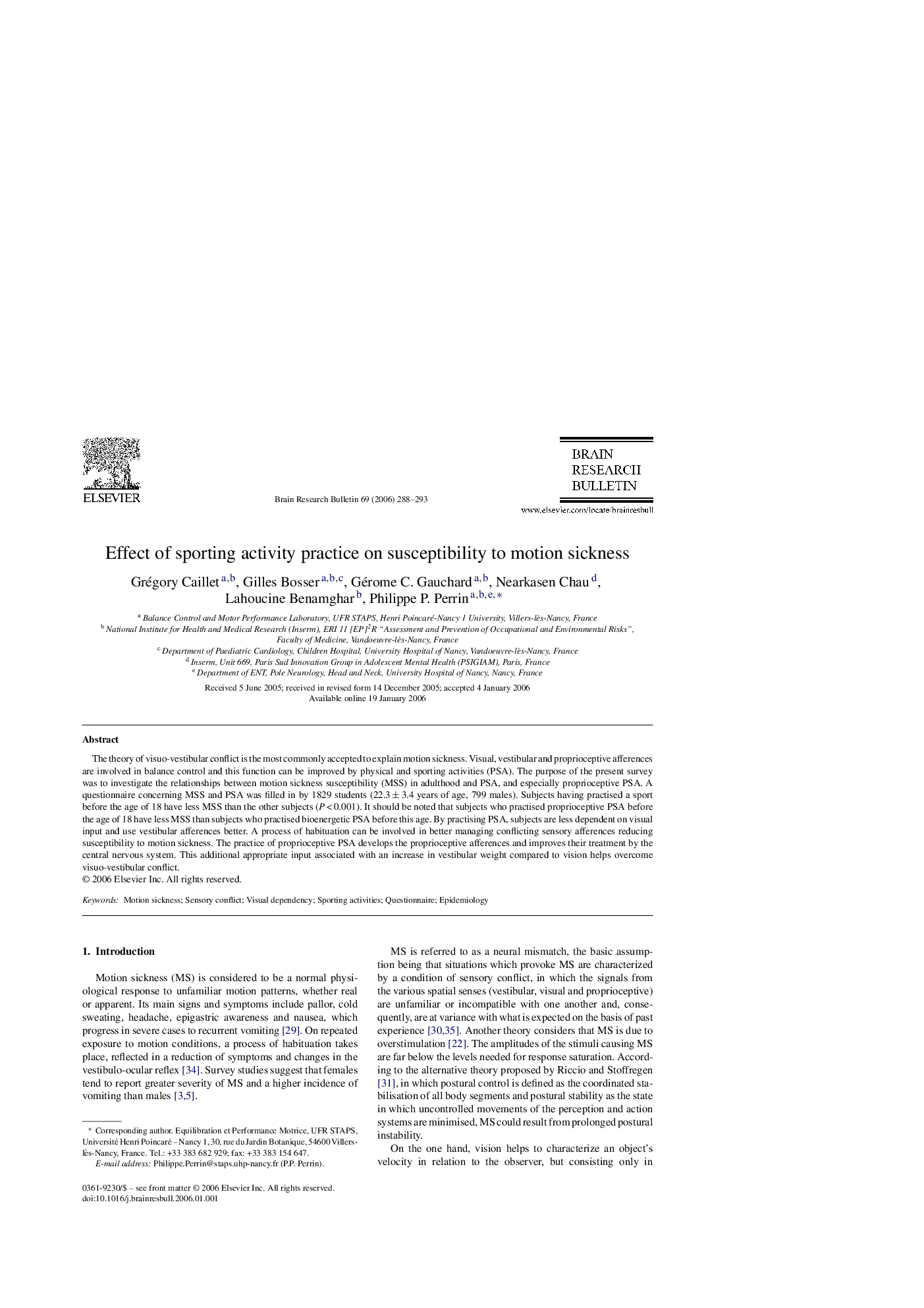| کد مقاله | کد نشریه | سال انتشار | مقاله انگلیسی | نسخه تمام متن |
|---|---|---|---|---|
| 4320336 | 1290860 | 2006 | 6 صفحه PDF | دانلود رایگان |

The theory of visuo-vestibular conflict is the most commonly accepted to explain motion sickness. Visual, vestibular and proprioceptive afferences are involved in balance control and this function can be improved by physical and sporting activities (PSA). The purpose of the present survey was to investigate the relationships between motion sickness susceptibility (MSS) in adulthood and PSA, and especially proprioceptive PSA. A questionnaire concerning MSS and PSA was filled in by 1829 students (22.3 ± 3.4 years of age, 799 males). Subjects having practised a sport before the age of 18 have less MSS than the other subjects (P < 0.001). It should be noted that subjects who practised proprioceptive PSA before the age of 18 have less MSS than subjects who practised bioenergetic PSA before this age. By practising PSA, subjects are less dependent on visual input and use vestibular afferences better. A process of habituation can be involved in better managing conflicting sensory afferences reducing susceptibility to motion sickness. The practice of proprioceptive PSA develops the proprioceptive afferences and improves their treatment by the central nervous system. This additional appropriate input associated with an increase in vestibular weight compared to vision helps overcome visuo-vestibular conflict.
Journal: Brain Research Bulletin - Volume 69, Issue 3, 14 April 2006, Pages 288–293